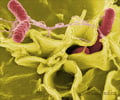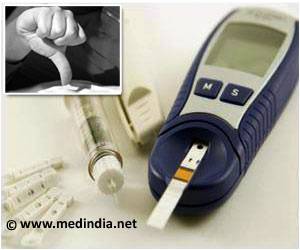For the world's poorest nations, drug giant GSK will cut 95 percent off the price of a diarrhea vaccine. This attempt would save hundreds of thousands of lives, says company's CEO.

Rotavirus causes chronic diarrhoea and is estimated to kill more than half a million children each year, mainly in Africa and Asia.
Under GSK's new pricing structure, the poorest nations will be able to buy a dose of the Rotarix vaccine for 1.50 (2.5 dollars, 1.7 euros), five percent of the 30 western price.
"To be successful in the long term, we have to operate in a way that is in step with society and its expectations," Witty wrote in the British paper.
The company aims to use profits generated in wealthier countries to subsidise the provision of drugs to poorer countries at a price which will just cover the cost of goods and production.
Witty said the drive to provide drugs at cost price was "not a gimmick or one-off philanthropic gesture (but) part of a concerted strategy to change our business model".
Advertisement
"We have to create a better and more sophisticated model, one that combines commercial success with long-term sustainable contributions. This is how we can help improve the health of people wherever they live."
Advertisement
"We're particularly excited about the offers for rotavirus vaccine because the shock of learning that more than 500,000 children die from a preventable disease is what drew us to work in global health," the Gateses added.
British Prime Minister David Cameron will next week host a meeting of the Global Alliance for Vaccines and Immunisation (Gavi) to discuss how to raise more than $2.25 billion for immunisation programmes over the next four years.
Drug giant GSK announced in April that net profit rose 14 percent to $1.525 billion (1.72 billion euros, $2.5 billion) in the first quarter, despite a slump in product sales.
Source-AFP










